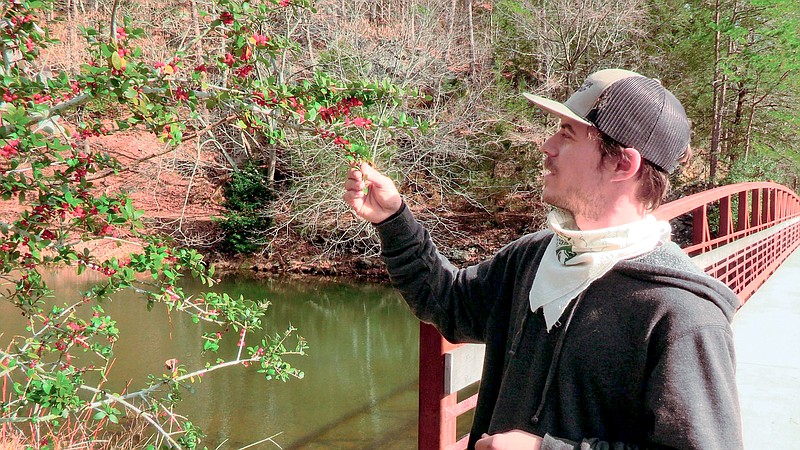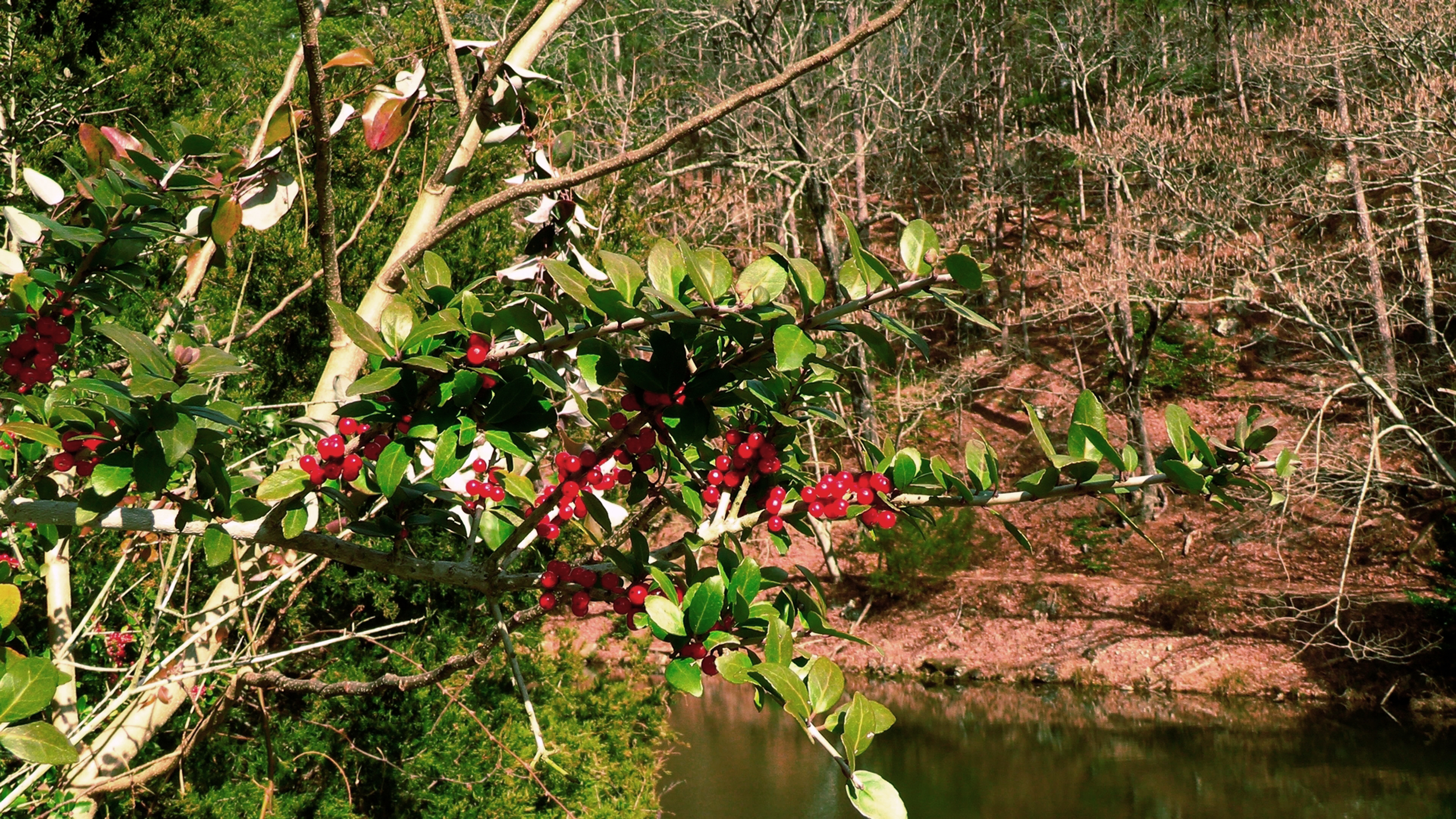A tea company wants to source leaves from the Northwoods Trails system, offering to remove an invasive plant species as consideration for the caffeine-bearing yaupon holly leaf that flourishes in areas of the city's largest park.
Ilex Organics CEO Bryon White proposed the harvesting agreement to the Hot Springs Board of Directors earlier this month. The Florida concern's family of brands includes Yaupon Brothers American Tea and Yazoo Yaupon, products sourced from sustainably harvested yaupon leaves that occur naturally in the Southeastern United States.
"Yaupon is an alternative to other caffeinated plant species," White told the board. "It does have caffeine, about as much as coffee. It's a very rich source of antioxidants. It has a lot of health benefits that are very similar to what tea offers. A major difference is yaupon has a lot less tannins than tea, so it's not bitter. It doesn't stain your teeth. It doesn't make your stomach upset. It's just great stuff."
Video not playing? Click here https://www.youtube.com/embed/lyjidmlUiDs
Leaves sourced from the Northwoods would be used for the company's Natural State Yaupon brand. White estimated his company could harvest up to 5,000 pounds of yaupon leaves annually from the Northwoods, contracting local workers to harvest the plant and work in the packaging and drying facility.
"If that were to come to fruition, we'd be investing in the community here, creating jobs here," he told the board. " ... Harvesters can make $4-to-$6 per pound. They can easily do $200, $300 a day."
For every pound of yaupon leaves harvested, Ilex Organics would remove a pound of nandina domestica from the Northwoods. White said the invasive, ornamental plant is toxic to birds.
"I think we could remove a lot more than 5,000 pounds of nandina," he said. "There's quite a bit of it."
White said there's dozens of invasive species his company could remove as consideration for harvesting yaupon leaves, but chemical agents would be required.
"We think we can control it without the use of systemic herbicides," he said of nandina. "This is not the proposal that would eradicate it. It's more of a way of mitigating it and controlling it as best we can. I would love to run out of nandina. I just don't think that we will. There's an awful lot of it. It's a big problem. I think we can do good work and control its spread."
He said his company has a similar harvesting agreement with New Smyrna Beach, Fla., which allows Ilex Organics to harvest a pound of yaupon leaves for every pound of Brazilian pepper it removes.
White said it's unclear how the yaupon shrub came to be so prolific in Hot Springs, which is at the northern end of its naturally occurring range, but he has a theory.
"It's a lot farther north than yaupon generally likes to grow," he told the board. "It doesn't really like rocky soil, which, obviously, you have a lot of. Regardless, there's a lot of it, and it seems to be very healthy.
"One theory is it was brought here a very long time ago by Indigenous people. Yaupon was consumed by dozens of Indigenous tribes for many thousands of years, where it was consumed not only as a food and a medicine, but also as a sacrament. We have a working theory it was transplanted here by Indigenous people maybe hundreds or even thousands of years ago. It's naturalized in that time, so it seems to be right at home."
White said only the leaves would be harvested, with the work done by hand.
"You wouldn't really know we were there," he told the board. "We don't leave anything behind. We just harvest the leaves and move on. We harvest once, come back a couple months later, and harvest again. At that time, the plant has generally recovered to the size it was before it was harvested.
" ... The whole point of the concept is to create a healthier forest ecosystem. It's actually quite healthy to trim the yaupon back. It makes it grow back in a fuller way. And we're removing the invasive plant life, which is beneficial to the ecosystem as a whole."

